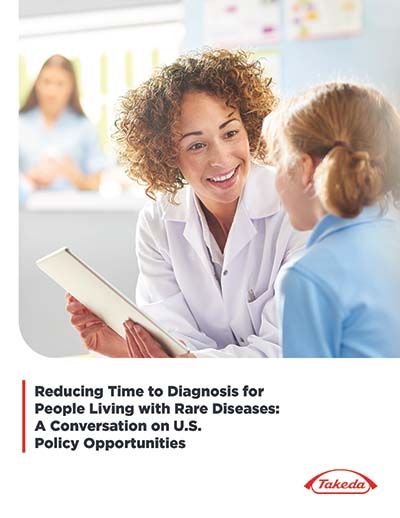
Reduce time to diagnosis, improve access to care
As part of its commitment to reducing burdens facing the rare disease community, Takeda announced three priority policy reforms and solutions designed to address significant barriers to care for patients managing rare diseases and genetic conditions as part of a new report, “Reducing Time to Diagnosis for People Living with Rare Diseases: A Conversation on U.S. Policy Opportunities.” The proposed policy solutions, which reflect insights and perspectives from leaders and experts at Amyloidosis Research Consortium (ARC), EveryLife Foundation for Rare Diseases (EveryLife), National Organization for Rare Disorders (NORD) and Parent Project Muscular Dystrophy (PPMD), are designed to address persistent and long-standing barriers that contribute to an ongoing cycle of missed or delayed diagnosis and treatment for patients.
The policy recommendations reinforce an urgent need to broadly engage patients on the importance of timely genetic screenings, specialized disease care and treatment as well as clinical data coordination. According to a new survey from Morning Consult commissioned by Takeda, approximately two-thirds of voters have limited knowledge or understanding about rare diseases, genetic screening or counseling, underscoring the comprehensive approach required to reach and engage patients and providers regarding options for screenings and care.
To download and read the whitepaper, CLICK HERE.
